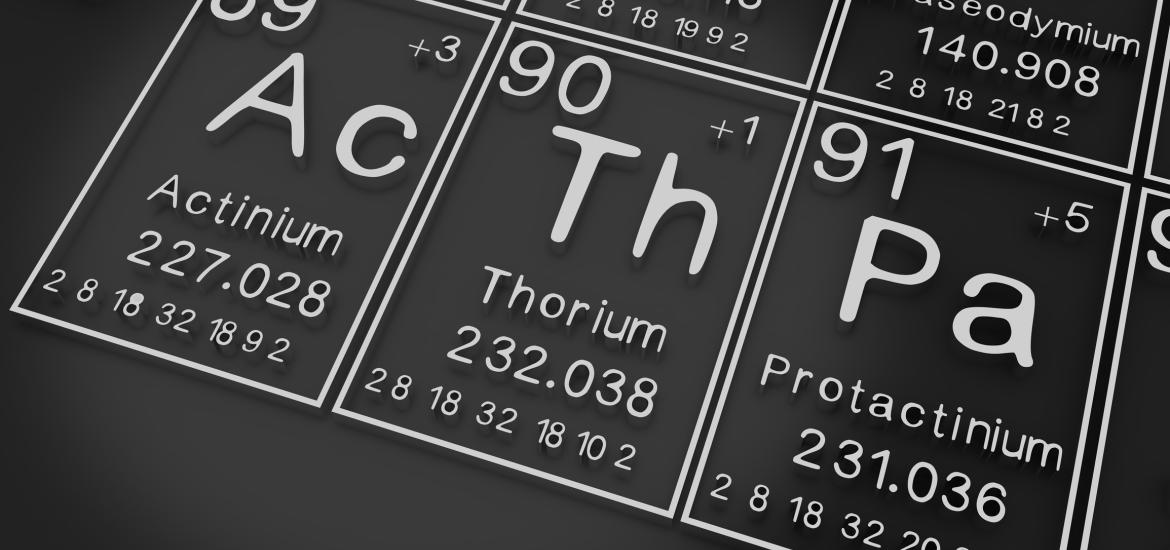
Bayer and Lilly make radioligand progress
First-in-human trial initiations feature anti-PSMA radioligands, KRAS G12D, Nectin-4 and more.
First-in-human trial initiations feature anti-PSMA radioligands, KRAS G12D, Nectin-4 and more.

After Bristol Myers Squibb’s acquisition of RayzeBio, and the closure of Lilly’s Point takeover, radiopharmaceuticals remain hot. New entries listed on the clinicaltrials.gov registry over the past week reveal two PSMA-directed radioligands – one originated by Point and the other by companies bought by Bayer – entering first-in-human studies.
Not only that, but a third anti-PSMA asset, a Car-T therapy being developed by BRL Medicine, is new into phase 1. The flurry of first clinical trial initiations also includes projects targeting the KRAS G12D mutation, one of which will be of interest to followers of AstraZeneca’s recently expanding plans in cell therapy.
The new clinical radioligands are Lilly’s PNT2001 and Bayer’s BAY 3563254. Both will be tested in PSMA-positive metastatic castration-resistant prostate cancer, and both use actinium-225 as the radioisotope. That’s significant as Point’s lead, PNT2002, is a lutetium-177-containing anti-PSMA, so advancing PNT2001 sees Lilly expanding Point’s work into alpha emitters.
Bayer in June 2021 acquired two companies, Noria and PSMA Therapeutics, and their work on actinium has yielded BAY 3563254. The work is relevant in light of Novartis’s plans to expand its anti-PSMA portfolio beyond Pluvicto; today the Swiss group's pipeline includes the phase 1 assets AAA802 (225-Ac-PSMA-R2, derived from Advanced Accelerated Applications) and AAA817 (225-Ac-PSMA-617, from Endocyte).
G12D
Like PSMA, targeting the KRAS G12D mutation is becoming competitive, and the clinical crowd is now being joined by AstraZeneca’s NT-112, an engineered T-cell receptor therapy, and Quanta Therapeutics’ allosteric small molecule QTX3034.
The former is the result of Astra’s 2022 acquisition of Neogene for $200m up front, a move that has already seen the TP53-armoured asset NT-175 progress into the clinic. While NT-175 is designed for people with the HLA-A*02:01 serotype, most prevalent among white people, NT-112 is restricted to HLA-C*08:02, a type more widely expressed among the black population.
Meanwhile Quanta, a private US biotech, raised $51m in a series D round last May, and presented preclinical data on QTX3034 at the 2023 AACR meeting. Interestingly, it describes the asset as a multi-KRAS inhibitor that is “G12D preferring”; its pipeline also includes the G12D-selective asset QTX3046, and a G12V-preferring multi-KRAS, QTX3544.
Recently disclosed first-in-human studies*
| Project | Mechanism | Company | Trial | Scheduled start |
|---|---|---|---|---|
| YY201 | STAT3 inhibitor | Shanghai Yuyao Biotechnology | Unspecified solid & haem cancers | 26 Oct 2023 |
| JSKN033 | HER2 x HER2 ADC | Alphamab | SC combo with envafolimab in solid tumours | 18 Jan 2024 |
| DXC006 | Undisclosed ADC | Hangzhou DAC | Unspecified solid & haem cancers | 24 Jan 2024 |
| NBL-028 | Anti-Claudin6/4-1BB bispecific MAb | NovaRock/ CSPC Pharmaceutical | Solid tumours | Jan 2024 |
| SC-101 | Nectin-4 peptide drug conjugate | Tianjin ConjuStar | Unspecified | Jan 2024 |
| ABSK112 | EGFR exon 20 inhibitor | Abbisko Therapeutics | Metastatic NSCLC | Jan 2024 |
| MBS314 | Anti-GPRC5D x BCMA T-cell engager | Beijing Mabworks | R/r multiple myeloma | Jan 2024 |
| PNT2001 | Actinium-225 labelled anti-PSMA radioconjugate | Lilly (ex Point) | Accel, PSMA+ve mCRPC | Jan 2024 |
| BRL-501 | Anti-PSMA Car-T | BRL Medicine | PSMA+ve mCRPC (investigator-initiated) | Jan 2024 |
| hNeo-T | Haploidentical targeted neoantigen T cells | Beijing Genomics Institute | EBV+ve T-cell lymphoma | 1 Feb 2024 |
| LNF1901 | Anti-CD40 MAb | Lunan Pharma | Unspecified | 1 Feb 2024 |
| RP-1664 | PLK4 inhibitor | Repare Therapeutics | Solid tumours | Feb 2024 |
| NT-112 | KRAS G12D eTCR | AstraZeneca (ex Neogene) | KRAS G12D+ve solid tumours (HLA-C*08:02) | 15 Feb 2024 |
| QTX3034 | Allosteric multi-KRAS inhibitor | Quanta Therapeutics | KRAS G12D+ve solid tumours, +/- Erbitux | 1 Mar 2024 |
| FC084CSA | AXL inhibitor | FindCure Biosciences | Solid tumours | 1 Mar 2024 |
| HER2 Car-M cells | Anti-HER2 Car-macrophage therapy | Macera Therapeutics | HER2+ve gastric cancer with peritoneal metastases | 1 Mar 2024 |
| BAY 3563254 | Actinium-225 labelled anti-PSMA radioconjugate | Bayer (ex Noria/PSMA) | Pantha, PSMA+ve mCRPC | 29 Mar 2024 |
| SNV1521 | PARP1 inhibitor | Synnovation | Solid tumours | Apr 2024 |
Note: *projects newly listed on the clinicaltrials.gov database between 23 and 30 Jan 2024.
Other industry projects newly into human trials include Abbisko’s ABSK112, an inhibitor of the rare EGFR exon 20 insertion mutation, an approach that last week helped Arrivent raise $175m in a Nasdaq flotation.
Beijing Mabworks’ MBS314 links into two modalities, inhibition of GPRC5D and BCMA, in a CD3-based T-cell engaging approach against multiple myeloma. Approved drugs against these two antigens individually include Johnson & Johnson’s Talvey and Tecvayli respectively, and J&J recently started a phase 3 study combining the two.
Nectin-4 has been in focus of late given Bicycle’s plans to challenge Pfizer’s Padcev, and last week’s success in an early trial of CRB-701, an asset Corbus licensed from CSPC. Recent entrants include Adcentrx’s ADRX-0706, and the field now includes Tianjin ConjuStar’s SC-101; in contrast to the ADCs that dominate this space, SC-101 is described as a peptide-drug conjugate.
Alphamab is combining its subcutaneously delivered anti-PD-L1 drug envafolimab, approved in China in 2021, in a fixed-dose combination with the HER2 x HER2 bispecific JSKN003 in a solid tumour trial. And Shanghai Yuyao’s work on the STAT3 inhibitor YY201 will be of interest to Bayer, which has just taken the Vividion-derived BAY 3630914 into its own phase 1 study.
2852













